[Film Review] Rosemary’s Baby (1968)
TW: Sexual assault and rape.
Motherhood is a theme dealt with a lot in horror movies, but Rosemary’s Baby (1968) perhaps gives us one of the best representations of the isolation and loneliness a mother can feel as they muddle through their nine months of pregnancy. However, things are slightly complicated for Rosemary (Mia Farrow), as she believes her neighbours may be witches who are hatching a plot to steal her newborn.
Pretty much perfectly adapted from the wonderful 1967 novel of the same name by Ira Levin, Rosemary’s Baby starts with a young couple, Rosemary and her husband Guy (John Cassavetes), searching for a new apartment. They view a recently-vacated flat in the Bramford building, which Rosemary falls in love with almost instantly. Despite the building’s sketchy past including cannibal sisters and devil worship, the couple decides to move in.
After the death of a young woman in the building, Rosemary and Guy are soon invited to dinner by Minnie (Ruth Gordon) and Roman Castevet (Sidney Blackmer), a very intense and nosey couple who live in the apartment next door. While Rosemary is polite enough to accept a dinner invitation, she is keen for the friendship to end there. Guy, however, seems drawn in by the possibility that they can help his acting career, and so continues to visit the Castevets alone.
Soon, Guy’s main acting rival goes blind, and Guy finally gets his big break. After initially growing distant from Rosemary as he throws himself into his now successful career, he soon suggests that the couple start trying for a baby. Rosemary is over the moon, having made hints at wanting children several times throughout the film so far, and the pair plan a romantic night. However, when Rosemary falls ill after eating a chocolate mousse delivered by Minnie, she finds herself experiencing a series of increasingly strange dreams, which end with her being raped by a strange creature with terrifying eyes and large claws.
In the morning, Rosemary has only the faintest memories of her dreams, and Guy explains away the scratches on her back by implying that he raped her while she slept to ensure they didn’t miss their baby-making window. In case you hadn’t guessed by now from his seemingly offhand but overly-pushy comments about Rosemary wearing the foul-smelling necklace that once belonged to a dead girl that Minnie gifted her or about Rosemary not wanting to eat the chocolate mousse because she didn’t like the taste, Guy is possible the worst husband/person in the world.
And he only gets worse from here, as Rosemary soon finds out she is in fact pregnant. Guy’s first thought is to run and tell the Castevets, and from this point on, Rosemary never gets a moment’s peace from them. From making her change doctor, to forcing her to drink a herbal drink that Minnie prepares and hand delivers every day, Rosemary spends more time with the Castevets than she does with Guy.
The rest of the story follows the remainder of Rosemary’s pregnancy and her increasing paranoia that something isn’t quite right with the Castevets and their friends who find it appropriate to push their way into her life. Rosemary’s new doctor tells her not to read any books, or speak to her friends about her pregnancy, and so she feels completely alone, having to rely on the advice of a man who will quite happily leave in her pain for months under claims that it’s completely normal. The audience, and Rosemary, seem to be the only people that can see something is very wrong in this fancy New York apartment building, but the veil of normality that the Castevets have managed to place over their lives means its hard for Rosemary to reach out for help or find someone to believe her.
Aside from a couple of shots hinting at the Devil’s involvement in proceedings, Rosemary’s Baby moves away from focussing on monsters and occult for the most part. Instead, it’s the creeping paranoia that builds over the 136-minute runtime that makes the whole experience extremely creepy. We know the real monsters are lurking in the background, in the next apartment, and even in Rosemary’s bed in the form of her husband, Guy. The coolness with which Guy gaslights Rosemary, insults her intelligence (and her haircut), and ensures her continued isolation as she fears for her baby’s life is bone-chilling.
Rosemary’s Baby is a great study of motherhood, focussing on the importance of providing mothers with the support they need as they navigate the often scary and strange world of motherhood and growing a baby. Rosemary’s Baby shows us what happens when mothers are denied this basic level of support, or access to information about what is actually happening inside their bodies. The Castevets and those aiding them think that by leaving Rosemary in the dark she will be happier and oblivious to what is going on around her, but even in pregnancy, Rosemary knows to trust her motherly instincts, and try to make the decisions which are best for her and her baby.
Overall, Rosemary’s Baby is one of those movies that gets creepier and more unsettling every time you watch it. Each viewing reveals another sneaky move by those surrounding Rosemary, showing how well the web of lies around her pregnancy has been constructed. It’s especially chilling for anyone who has experienced pregnancy, as we can all too easily imagine ourselves in Rosemary’s shoes. While I would recommend Rosemary’s Baby to anyone who loves some psychological horror, I’d maybe skip it if you’re currently pregnant, but remember to keep a lookout for any neighbourhood witches.


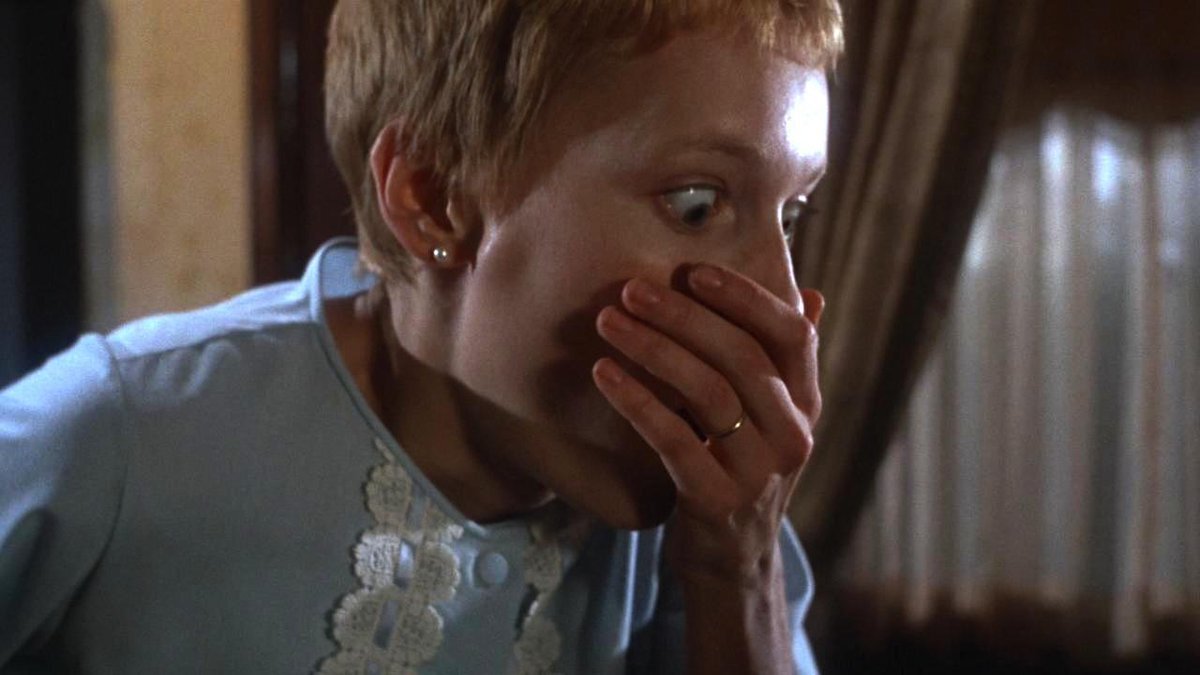
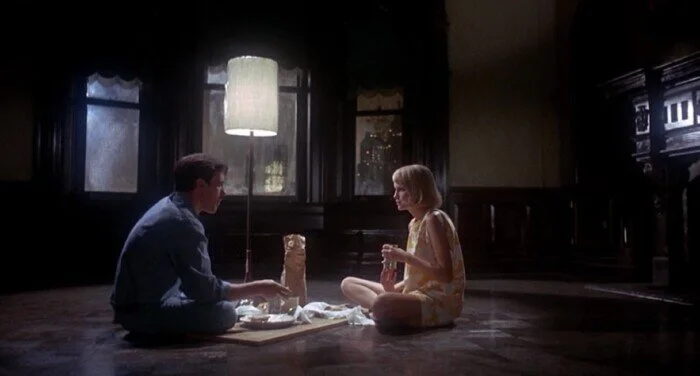
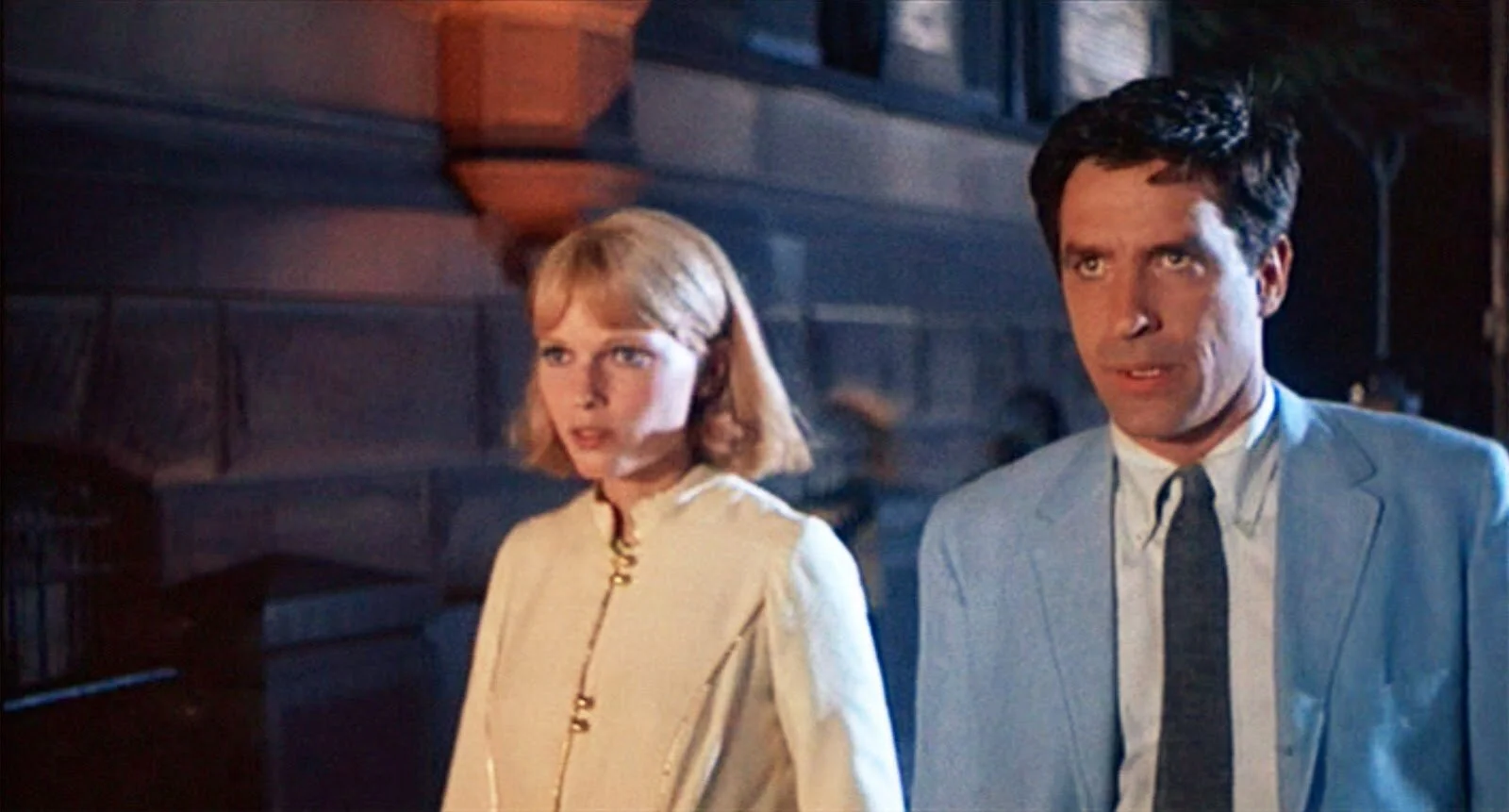
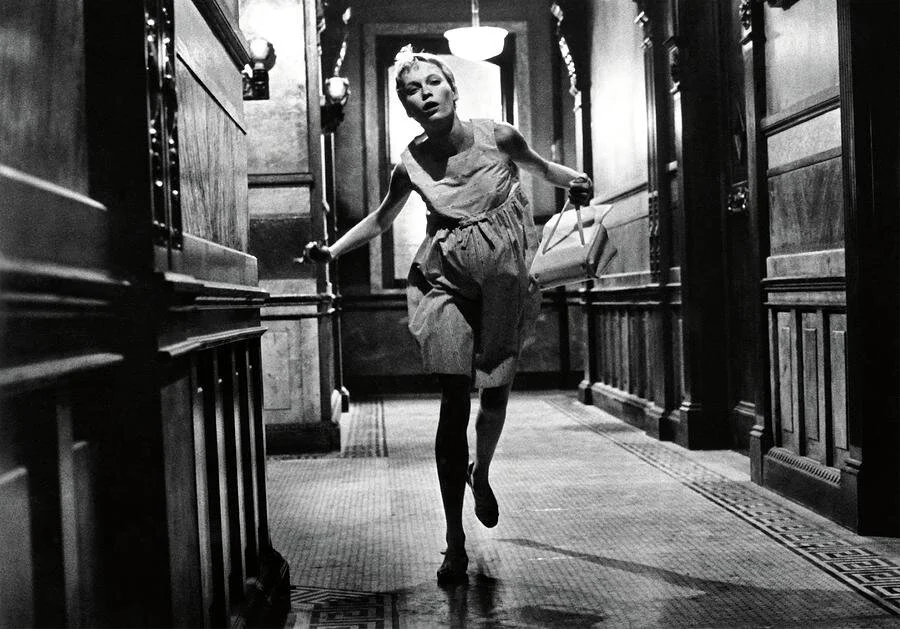
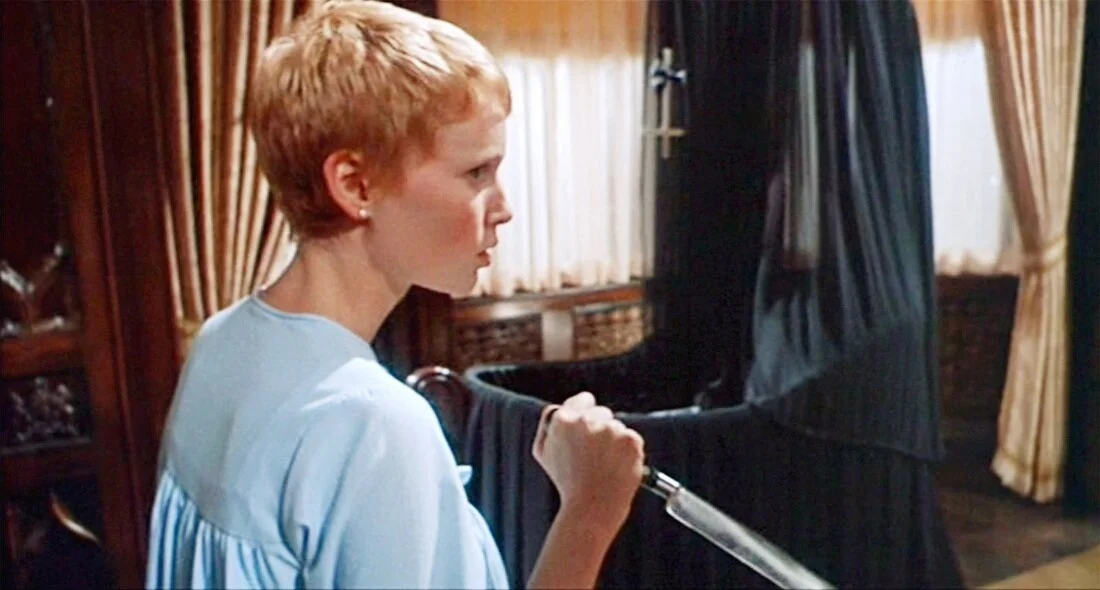


![[Film Review] V/H/S/85 (2023)](https://images.squarespace-cdn.com/content/v1/5fe76a518d20536a3fbd7246/1697455043249-K64FG0QFAFVOMFHFSECM/MV5BMDVkYmNlNDMtNGQwMS00OThjLTlhZjctZWQ5MzFkZWQxNjY3XkEyXkFqcGdeQXVyMTUzMTg2ODkz._V1_.jpg)
![[Film Review] Kill Your Lover (2023)](https://images.squarespace-cdn.com/content/v1/5fe76a518d20536a3fbd7246/1697465940337-T55VQJWAN4CHHJMXLK32/56_PAIGE_GILMOUR_DAKOTA_HALLWAY_CONFRONTATION.png)
![[Film Review] Shaky Shivers (2022)](https://images.squarespace-cdn.com/content/v1/5fe76a518d20536a3fbd7246/1696442594997-XMJSOKZ9G63TBO8QW47O/Screenshot+2023-10-04+at+18.59.33.png)
![[Film Review] Elevator Game (2023)](https://images.squarespace-cdn.com/content/v1/5fe76a518d20536a3fbd7246/1696440997551-MEV0YZSC7A7GW4UXM5FT/Screenshot+2023-10-04+at+18.31.42.png)
![[Film Review] A Wounded Fawn (2022)](https://images.squarespace-cdn.com/content/v1/5fe76a518d20536a3fbd7246/1695484054446-7R9YKPA0L5ZBHJH4M8BL/Screenshot+2023-09-23+at+16.42.24.png)
![[Film Review] Perpetrator (2023)](https://images.squarespace-cdn.com/content/v1/5fe76a518d20536a3fbd7246/1695483561785-VT1MZOMRR7Z1HJODF6H0/Screenshot+2023-09-23+at+16.32.55.png)
![[Film Review] Mercy Falls (2023)](https://images.squarespace-cdn.com/content/v1/5fe76a518d20536a3fbd7246/1695482997293-E97CW9IABZHT2CPWAJRP/Screenshot+2023-09-23+at+16.27.27.png)






















![[Editorial] 10 Films & Events to Catch at Soho Horror Film Fest 2023](https://images.squarespace-cdn.com/content/v1/5fe76a518d20536a3fbd7246/1700819417135-299R7L4P0B676AD3RO1X/Screenshot+2023-11-24+at+09.41.52.png)
![[Editorial] 9 Horror Nintendo Switch Games To Play](https://images.squarespace-cdn.com/content/v1/5fe76a518d20536a3fbd7246/1697214470057-3XZXX8N4LYIMDFWS6Z3P/Screenshot+2023-10-13+at+17.20.13.png)
![[Mother of Fears] Mothering in Silence in A Quiet Place (2018)](https://images.squarespace-cdn.com/content/v1/5fe76a518d20536a3fbd7246/1696445921315-HZJ2DZYQIH6VVWXBO2YL/Screenshot+2023-10-04+at+19.52.29.png)
![[Editorial] 5 Female Focused Horror Book Recommendations](https://images.squarespace-cdn.com/content/v1/5fe76a518d20536a3fbd7246/1696441981361-52EQCTJ7AT2QF1927GM7/919xtm6d3fL._AC_UF894%2C1000_QL80_.jpg)
![[Editorial] 9 Best Slashers Released Within 10 Years of Scream (1996)](https://images.squarespace-cdn.com/content/v1/5fe76a518d20536a3fbd7246/1695478839037-LOFHGVM3H6BMSZW7G83M/Screenshot+2023-09-23+at+15.15.11.png)
![[Mother of Fears] Mother Vs. Monster in Silent Hill (2006)](https://images.squarespace-cdn.com/content/v1/5fe76a518d20536a3fbd7246/1695485781119-H6GNP0G3J2TLPAOIABV7/Screenshot+2023-09-23+at+17.11.56.png)
![[Editorial] 9 Terrifying Cerebral Visions in Horror Movies](https://images.squarespace-cdn.com/content/v1/5fe76a518d20536a3fbd7246/1693509801235-X23OL50T1DVGECH0ZJK2/MV5BMjQ0MTg2MjQ4MV5BMl5BanBnXkFtZTgwMTU3NDgxMTI%40._V1_.jpg)
![[Mother of Fears] I Don’t Wanna Be Buried in a Pet Sematary (1989) and (2019)](https://images.squarespace-cdn.com/content/v1/5fe76a518d20536a3fbd7246/1691328766069-QFNAVJOMFZVZ5CLU1RWM/Screenshot+2023-08-06+at+14.23.13.png)

If you know me at all, you know that I love, as many people do, the work of Nic Cage. Live by the Cage, die by the Cage. So, when the opportunity to review this came up, I jumped at it.